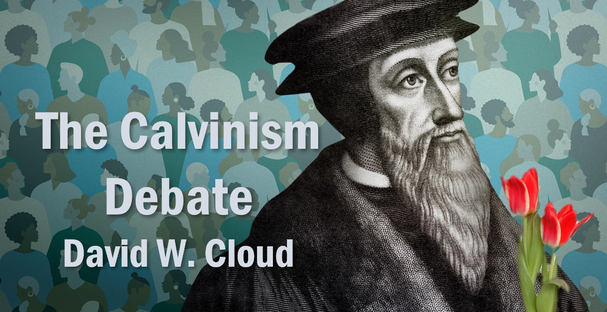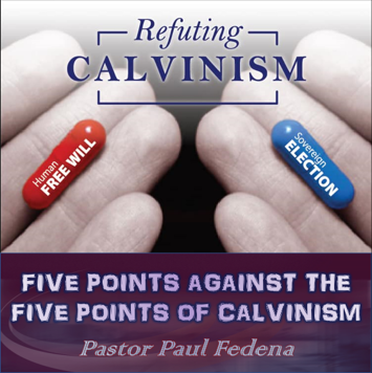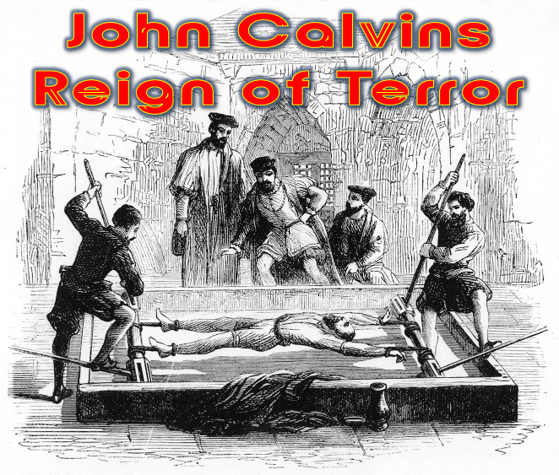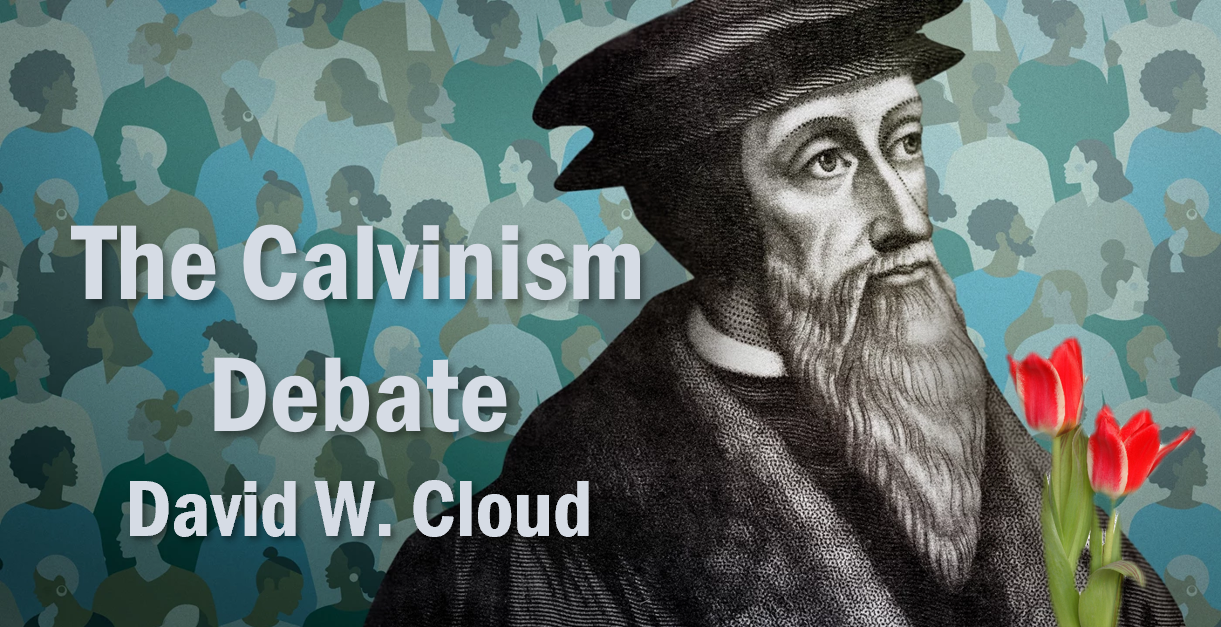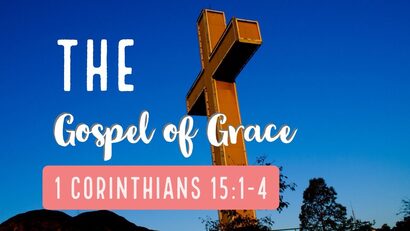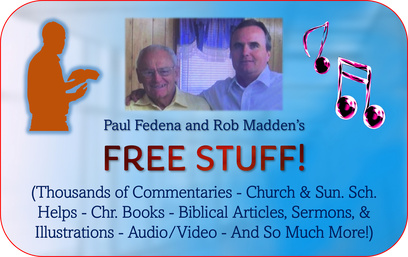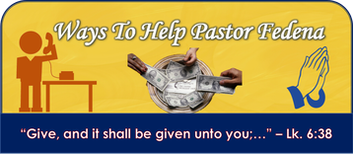| calvinism_debate.pdf | |
| File Size: | 1981 kb |
| File Type: | |
It might be helpful for us to hear what some of the widely-accepted Bible teachers have to say on this subject:
Dr. Harry A. Ironside: "Scripture plainly teaches election based upon God's foreknowledge. It is just as plain in its declarations of man's free will. All men are invited to accept the salvation that God has provided in Jesus Christ. 'Whosoever will' means just what it says." (What's the Answer? p. 54).
Dr. James M. Gray, past President of Moody Bible Institute: "Take the lines indicated by the division into Calvinists and Arminians, for example. The apparently opposite positions for which these schools of religious thought stand are both found in the Bible, viz, God's sovereignty and man's free agency; but it would seem as though no one finite mind could hold both equally at the same time. How necessary, however, that both be duly emphasized!" (Bible Problems Explained, p. 45).
Dr. William L. Pettingill: "The relation between God's sovereignty and elective purpose on the one hand and free grace and human responsibility on the other has perplexed the commentators throughout the ages. The best course is to believe all that God says and wait for Him to make it plain. God insists upon His sovereignty and also upon man's responsibility. Believe both and preach both, leaving the task of 'harmonizing' with Him." (Bible Questions Answered, p. 209).
C. H. Spurgeon: "Brethren, be willing to see both sides of the shield of truth. Rise above the babyhood which cannot believe two doctrines until it sees the connecting link. Have you not two eyes, man? Must you needs put one of them out in order to see clearly?" (Faith and Regeneration).
Dr. R. A. Torrey: "The Bible is the revelation of an infinite mind that presents all sides of the truth... We are not to try to explain away the clear teaching of the Word of God as to the sovereignty of God on the one hand, nor the clear teaching of the Word of God as to the freedom of the human will on the other hand." (The Importance and Value of Proper Bible Study).
Dr. Arthur T. Pierson: "Election taught in the Word, must be consistent both with the sovereign will of God and the freedom of man; and if we cannot reconcile these two, it is because the subject is so infinitely lifted up above us. Man is free. There are in your heart and mine seven thunders that utter their voices, such as 'I am,' 'I think,' 'I reason,' 'I love,' 'I judge,' 'I choose,' 'I act.' And all these voices unite in affirming 'I am responsible.' Moreover, God Himself directly appeals to choice: He says, 'Why will ye die?' (Ezekiel 18:31). As Revelation closes we read, 'Whosoever will, let him take the water of life freely' (Rev. 22:17). Thus the last great invitation in God's Book is an appeal to the will. But—most startling of all—is Christ's lament over Jerusalem: "How often WOULD I have gathered thy children...even as a hen gathereth her chickens under her wings, and YE WOULD NOT' (Matthew 23:37). The yearning of God and the stubborn refusal of man are here put in clear antagonism. Luke 15 contains one parable in three parts. The first represents the Shepherd seeking the lost sheep. Thus far one might judge that all man has to do is passively to wait for God to come after him. But in the latter part of the parable we have the complementary truth, and from this part, if alone, it might be inferred that the sinner has everything to do, and God nothing. But putting the two together, we get the whole truth. While Jesus never spoke of 'election' or 'predestination' He gives us the parable of the sheepfold, of which He is the Door, and of the flock, of which He is the Shepherd; and because one of these does not put the whole truth before us, He gives us the two half-truths, joined in one double parable (John 10)" (The Believer's Life: Its Past, Present, and Future Tenses, pp. 24-26,30).
...Election and Free Will by Perry Rockwood.
Dr. Harry A. Ironside: "Scripture plainly teaches election based upon God's foreknowledge. It is just as plain in its declarations of man's free will. All men are invited to accept the salvation that God has provided in Jesus Christ. 'Whosoever will' means just what it says." (What's the Answer? p. 54).
Dr. James M. Gray, past President of Moody Bible Institute: "Take the lines indicated by the division into Calvinists and Arminians, for example. The apparently opposite positions for which these schools of religious thought stand are both found in the Bible, viz, God's sovereignty and man's free agency; but it would seem as though no one finite mind could hold both equally at the same time. How necessary, however, that both be duly emphasized!" (Bible Problems Explained, p. 45).
Dr. William L. Pettingill: "The relation between God's sovereignty and elective purpose on the one hand and free grace and human responsibility on the other has perplexed the commentators throughout the ages. The best course is to believe all that God says and wait for Him to make it plain. God insists upon His sovereignty and also upon man's responsibility. Believe both and preach both, leaving the task of 'harmonizing' with Him." (Bible Questions Answered, p. 209).
C. H. Spurgeon: "Brethren, be willing to see both sides of the shield of truth. Rise above the babyhood which cannot believe two doctrines until it sees the connecting link. Have you not two eyes, man? Must you needs put one of them out in order to see clearly?" (Faith and Regeneration).
Dr. R. A. Torrey: "The Bible is the revelation of an infinite mind that presents all sides of the truth... We are not to try to explain away the clear teaching of the Word of God as to the sovereignty of God on the one hand, nor the clear teaching of the Word of God as to the freedom of the human will on the other hand." (The Importance and Value of Proper Bible Study).
Dr. Arthur T. Pierson: "Election taught in the Word, must be consistent both with the sovereign will of God and the freedom of man; and if we cannot reconcile these two, it is because the subject is so infinitely lifted up above us. Man is free. There are in your heart and mine seven thunders that utter their voices, such as 'I am,' 'I think,' 'I reason,' 'I love,' 'I judge,' 'I choose,' 'I act.' And all these voices unite in affirming 'I am responsible.' Moreover, God Himself directly appeals to choice: He says, 'Why will ye die?' (Ezekiel 18:31). As Revelation closes we read, 'Whosoever will, let him take the water of life freely' (Rev. 22:17). Thus the last great invitation in God's Book is an appeal to the will. But—most startling of all—is Christ's lament over Jerusalem: "How often WOULD I have gathered thy children...even as a hen gathereth her chickens under her wings, and YE WOULD NOT' (Matthew 23:37). The yearning of God and the stubborn refusal of man are here put in clear antagonism. Luke 15 contains one parable in three parts. The first represents the Shepherd seeking the lost sheep. Thus far one might judge that all man has to do is passively to wait for God to come after him. But in the latter part of the parable we have the complementary truth, and from this part, if alone, it might be inferred that the sinner has everything to do, and God nothing. But putting the two together, we get the whole truth. While Jesus never spoke of 'election' or 'predestination' He gives us the parable of the sheepfold, of which He is the Door, and of the flock, of which He is the Shepherd; and because one of these does not put the whole truth before us, He gives us the two half-truths, joined in one double parable (John 10)" (The Believer's Life: Its Past, Present, and Future Tenses, pp. 24-26,30).
...Election and Free Will by Perry Rockwood.

